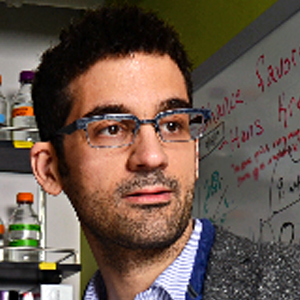
Different field, different problem, same solution: metabolism!
Metabolism has captured the interest of researchers across many different biological disciplines. In some fields, interest in longstanding metabolic questions has been renewed. In other areas, new metabolic connections are being made for the first time. No matter the topic, however, metabolism studies evoke pathway charts and methodological approaches that may not be common knowledge in all disciplines, and this could hinder dialogue between investigators. Moreover, many of the same metabolic patterns are observed consistently in different disease settings, animal models and cell types.
The purpose of our symposium at Discover BMB, the annual meeting of the American Society for Biochemistry and Molecular Biology, which will be held in March in Seattle, is to bring together researchers from disparate areas of biology who speak the common language of metabolism. We want to facilitate interactions between investigators who may be thinking about the same metabolic themes, but who are not typically at the same meetings or conferences. The presentations will not be organized by discipline but rather by metabolism topic, with the aim of stimulating new discussions and collaborative opportunities.
Our symposium will feature research examining metabolism at multiple levels — ranging from whole body to cells and organelles. We will hear how the same metabolic programs are implicated not only in diseases such as cancer and neurodegeneration but also in fundamental biochemical processes including immune response and vision.
Keywords: Metabolism, metabolomics, lipids, physiology, interorgan communication, mitochondria, lysosomes, isotope tracing.
Who should attend: Anyone interested in metabolism at any level in any context.
Theme song: “What Makes You Beautiful” by One Direction, because metabolism lights up all of our worlds — and in honor of the infamous “What Makes Glycolysis” parody (look it up!).
This session is powered by ox phos (platinum-level sponsor) and substrate-level phosphorylation (gold-level sponsor).
Speakers
Metabolic physiology
Gary Patti (chair), Washington University in St. Louis
Deb Muoio, Duke University
Nada Kalaany, Harvard Medical School
Matt Gentry, University of Kentucky
Metabolism in health and disease
Jason Tennessen, Indiana University
Jing Fan, University of Wisconsin
Organelle metabolism
Nika Danial (chair), Harvard Medical School
Dale Abel, University of California, Los Angeles
Roberto Zoncu, University of California, Berkeley
Natalie Niemi, Washington University in St. Louis
The complete list
Learn about all 11 symposia planned for Discover BMB 2023:- Protein Machines and Disorder
- Regulation of RNA
- Organelles, Mechanisms and Phase Properties of Cellular Quality Control
- Lipid Dynamics and Signals in Membrane and Protein Structure
- Frontiers in Carbohydrate Synthesis and Recognition
- Bias In, Bias Out in Data Science
- Cell Signaling — New Tools and Emerging Concepts
- Education and Professional Development
- Biochemistry of Elemental Cycling
- Advances in Organismal and Cellular Metabolism
- Artificial Intelligence and Machine Learning in Structural Biology, Drug Design and Systems Biology
Enjoy reading ASBMB Today?
Become a member to receive the print edition four times a year and the digital edition monthly.
Learn moreGet the latest from ASBMB Today
Enter your email address, and we’ll send you a weekly email with recent articles, interviews and more.
Latest in Science
Science highlights or most popular articles

Ragweed compound thwarts aggressive bladder and breast cancers
Scientists from the University of Michigan reveal the mechanism of action of ambrosin, a compound from ragweed, selectively attacks advanced bladder and breast cancer cells in cell-based models, highlighting its potential to treat advanced tumors.

Lipid-lowering therapies could help treat IBD
Genetic evidence shows that drugs that reduce cholesterol or triglyceride levels can either raise or lower inflammatory bowel disease risk by altering gut microbes and immune signaling.

Key regulator of cholesterol protects against Alzheimer’s disease
A new study identifies oxysterol-binding protein-related protein 6 as a central controller of brain cholesterol balance, with protective effects against Alzheimer’s-related neurodegeneration.

From humble beginnings to unlocking lysosomal secrets
Monther Abu–Remaileh will receive the ASBMB’s 2026 Walter A. Shaw Young Investigator Award in Lipid Research at the ASBMB Annual Meeting, March 7-10 in Washington, D.C.

Chemistry meets biology to thwart parasites
Margaret Phillips will receive the Alice and C. C. Wang Award in Molecular Parasitology at the ASBMB Annual Meeting, March 7-10 in Washington, D.C.

ASBMB announces 2026 JBC/Tabor awardees
The seven awardees are first authors of outstanding papers published in 2025 in the Journal of Biological Chemistry.


